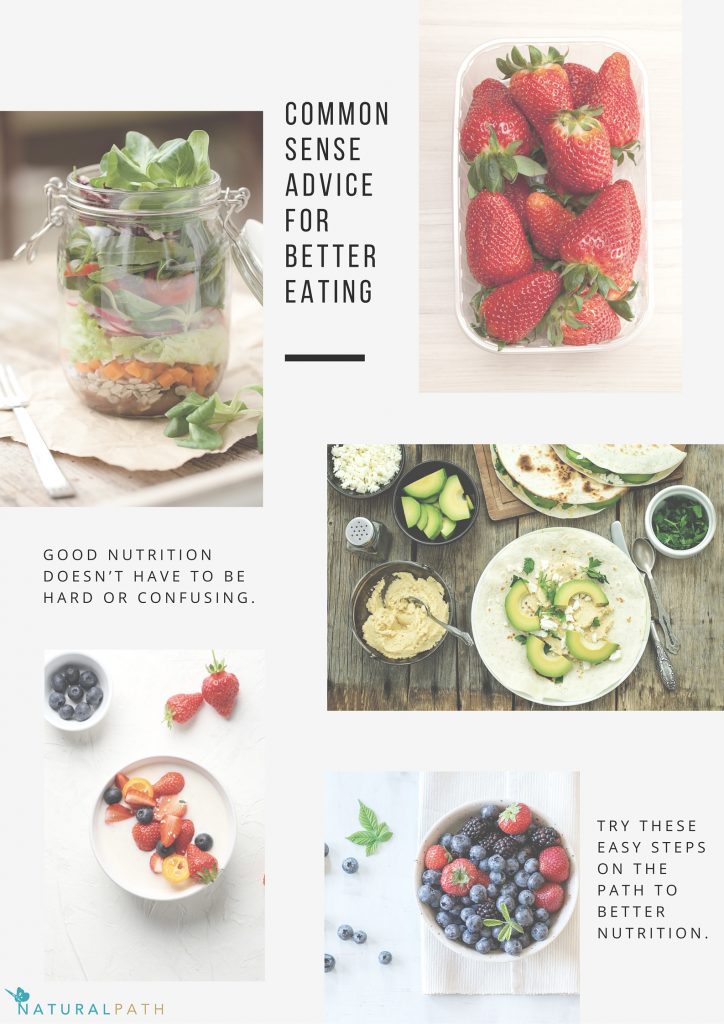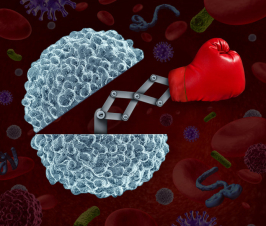“Eat food, not too much, mostly plants.” Many of us have heard the words that Michael Pollen made famous in his book In Defense of Food: An Eater’s Manifesto. It’s good advice and let’s explore why:
Eat food
This simply means what you eat should be real food. Ideally, something that is recognizeable as coming from a plant or an animal, not something with a 20 item largely unpronounceable list of ingredients that comes in a crinkly plastic bag.
Mostly plants
You cannot go wrong eating more vegetables and fruits. Please note the deliberate order there: vegetables and fruits. Vegetables have an edge due to their lower sugar content. Plants are full of fiber, micronutrients, phytochemicals, and yes, even protein. You can grow them, buy them from a farmer, buy them from a co-op or grocery store and each and every one of them will help you be a healthier person.
Not too much
We are a nation of outlandish portion sizes and illnesses to match. According to the Centers for Disease Control (CDC) 35% of American adults are obese. Add in those in the overweight category and that amounts to two thirds of the U.S. population. Healthy weight people are now in the minority. Eating less helps fit you into your pants comfortably and also helps alleviate or even eliminate diseases as diverse as high blood pressure, arthritis, diabetes, urinary incontinence and heartburn.
Mr. Pollen’s rules are easy to remember and very straightforward. To take it one step further I’d like to add four more commonsense food rules that I recommend every day in my medical practice:
Have protein and a vegetable (or fruit) with every meal
The protein stabilizes blood sugar and provides building blocks for all of our neurotransmitters (happy brain chemicals). The veggies (or fruit) give us fiber to help with blood sugar and provides many vitamins and cancer-fighting compounds that we all need. While meat is a fine protein source, think of beans, nuts, seeds, quinoa, eggs, yogurt or cottage cheese first as a more cost-effective and often healthier option.
Eat fermented foods daily
While we aren’t quite to the stage of being able to prescribe specific probiotic strains to help with specific diseases the research literature is very clear that probiotics are good for us. Having a daily dose may help with digestive concerns of all types, immune function and even mood. Eat unsweetened yogurt, kefir, cultured cottage cheese, sauerkraut, kimchee, pickles made with live cultures, kombucha, miso paste, or tempeh. A little goes a long way so feel free to treat them as condiments. Also remember that the best way to feed good gut bacteria is to give them lots of fiber – back to more vegetables!
Drink more water
Try drinking a full glass of water upon rising each morning. It’s an easy and refreshing habit to adopt. Leave a glass out on your nightstand to make it easy to remember or pour a fresh cold one if you prefer. Add fresh lemon juice or a spoonful of apple cider vinegar to boost digestion if you like or just have a glass of plain water. We are naturally dehydrated after a night’s rest and focusing on fluids in the morning is easier and healthier than realizing at days end you haven’t had much besides a cup of coffee 8 hours ago.
Fast for 12 hours every night
Many of us do this without thinking about it, but the habit of night-time snacking is equally popular. It’s well known that limiting food before bed helps w
ith digestion (especially heartburn) and promotes better sleep. New research is showing that by allowing at least 12 hours of break for the digestive system hormones that affect satiety and blood sugar regulation are positively affected. I like to tell patients about a mouse study from 2014 that illustrates this beautifully: Two groups of identical mice were given either a high-fat or a high-carbohydrate diet. Each group was subdivided into a 24-hour access or a 12-hour access to the food. Same calorie amount for each group. The mice in the 24-hour access groups gained weight and ended up with lifestyle illness such as high blood pressure and diabetes. The mice in the 12-hour access groups stayed thin and healthy. If you flip-flopped the feeding schedule the formerly thin mice became obese and ill, while the formerly fat mice became thin and healthy. The type of diet didn’t matter, the timing of the eating did. Humans are not mice, but this is a fairly simple adjustment that most people can make and potentially positively affect their health with very little effort.
Nutrition doesn’t have to be hard or confusing. Try these easy steps on the path to better nutrition.
 Dr. Alethea Fleming, ND is a passionate advocate for naturopathic geriatric medicine. A 2007 Bastyr University graduate, she also earned a certificate in Gerontology from the University of Washington. Dr. Fleming is the owner and leadphysician of the Vital Aging Clinic in Anacortes, Washington where she provides primary care to all adults as well as adjunctive geriatric care. Dr. Fleming is active in multiple community organizations as well as a member of WANP, AANP and OncANP. In her off hours, Dr. Fleming can be found hiking the beautiful trails of Fidalgo Island, spending time with her wonderful husband and son, or with her nose firmly in a good book.
Dr. Alethea Fleming, ND is a passionate advocate for naturopathic geriatric medicine. A 2007 Bastyr University graduate, she also earned a certificate in Gerontology from the University of Washington. Dr. Fleming is the owner and leadphysician of the Vital Aging Clinic in Anacortes, Washington where she provides primary care to all adults as well as adjunctive geriatric care. Dr. Fleming is active in multiple community organizations as well as a member of WANP, AANP and OncANP. In her off hours, Dr. Fleming can be found hiking the beautiful trails of Fidalgo Island, spending time with her wonderful husband and son, or with her nose firmly in a good book.

















